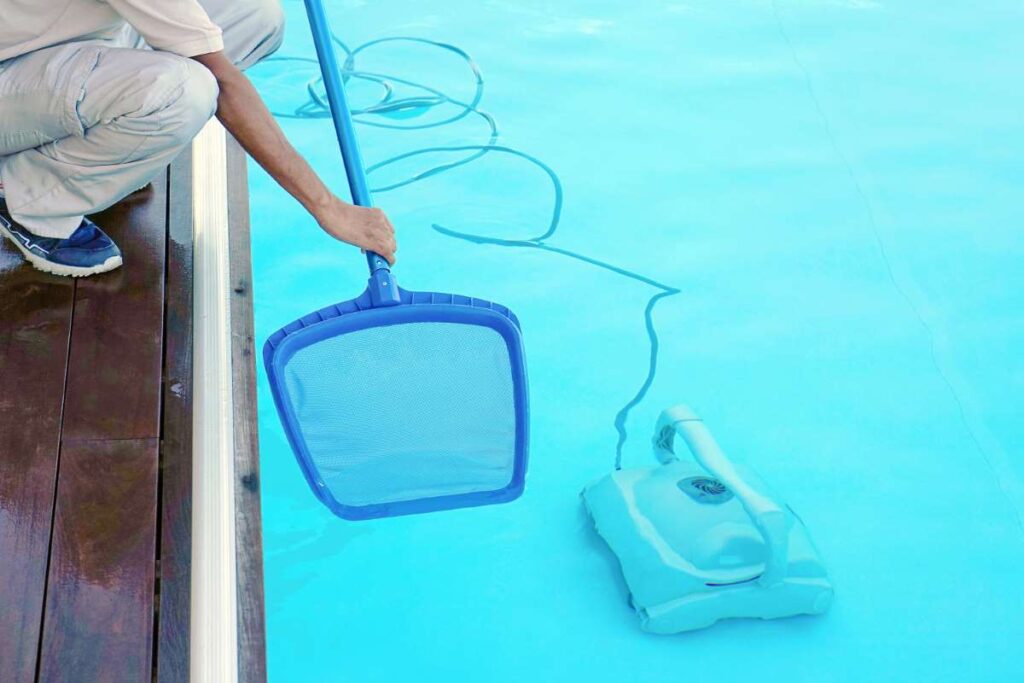Regional Regulations Every Pool Business Owner Should Know
Discover essential regional regulations that every pool business owner should be aware of to ensure compliance and successful operations in the industry.
This blog post explores crucial regional regulations that affect pool business owners in states like Florida, Texas, Nevada, Arizona, and California. Understanding these regulations is vital for operating legally and efficiently in the pool maintenance industry. From health and safety standards to environmental regulations, this comprehensive guide will equip business owners with the necessary knowledge to navigate the complexities of the regulatory landscape.
Introduction
In the pool maintenance industry, compliance with regional regulations isn’t just a legal obligation; it’s a fundamental aspect of running a successful business. With a growing focus on health, safety, and environmental consciousness, understanding the specific regulations in your area can mean the difference between thriving and facing penalties. In this post, we will delve into the most significant regulations that pool business owners should be familiar with, including licensing requirements, health standards, environmental policies, and more. As you embark on your journey, whether you are an aspiring entrepreneur or an established pool service provider looking to expand, staying informed about these regulations will help you minimize risks and enhance your business’s reputation.
Licensing Requirements
– State-Specific Licenses: Each state has its own set of licensing requirements for pool service providers. For instance, in Florida, pool contractors must obtain a Certified Pool/Spa Contractor license. This entails passing an examination and meeting specific experience criteria.- Local Permits: In addition to state requirements, many cities and counties impose their own regulations. For example, some localities require pool service businesses to register, obtain permits, and comply with inspection protocols.- Insurance Requirements: Most states mandate that pool service businesses carry liability insurance. This protects both the business and its clients in case of accidents or damages during maintenance operations.Understanding and adhering to these licensing requirements not only keeps you compliant but also establishes your credibility in the marketplace. Before embarking on your business journey, ensure that you have all necessary licenses and permits in place to avoid costly fines or legal complications.
Health and Safety Standards
– Water Quality Regulations: Health departments across various states enforce strict water quality standards. Regular testing and treatment of pool water are necessary to prevent health risks such as waterborne illnesses. In California, for example, the California Code of Regulations specifies the required levels of chlorine and pH in public pools.- Employee Safety: Pool maintenance often involves the use of chemicals and equipment that can pose risks to workers. OSHA (Occupational Safety and Health Administration) guidelines apply, necessitating proper training on chemical handling and the use of personal protective equipment (PPE).- Emergency Procedures: Establishing emergency procedures is critical. Pool businesses must have protocols in place for dealing with accidents, drowning incidents, or chemical spills. Regular emergency drills and training can prepare employees to respond effectively.By staying compliant with health and safety standards, pool business owners protect their clients and employees while enhancing their operational integrity.
Environmental Regulations
– Chemical Disposal: Pool maintenance involves the use of various chemicals, which must be disposed of according to environmental regulations. States like Texas have specific laws governing the disposal of hazardous waste, and violating these can lead to severe penalties.- Water Conservation Rules: In areas prone to drought, such as Arizona, regulations may impose restrictions on water use. Businesses must stay informed about local conservation measures and incorporate water-saving practices into their operations.- Permits for Construction or Renovation: If your business involves the construction or renovation of pools, you may need to secure environmental permits to ensure compliance with local environmental laws. This may include assessments of the impact on local ecosystems.Understanding and respecting environmental regulations not only ensures legal compliance but also contributes to sustainable business practices.
Employee Training and Certification
– Certification Programs: Many states require pool service technicians to complete certification programs that cover topics such as water chemistry, safety protocols, and equipment maintenance. For instance, the National Association of Sanitation and Health Agencies (NASHA) provides training that meets various state regulations.- Ongoing Training: As regulations evolve, so should your training programs. Regularly updating your team’s knowledge keeps them informed about the latest practices and compliance requirements. For example, Superior Pool Routes offers extensive training programs to equip technicians with vital skills.- Record Keeping: Maintaining accurate records of employee training and certifications is crucial. These records may be required during inspections or audits, serving as proof of compliance with state and local regulations.Investing in your employees through comprehensive training not only fulfills regulatory requirements but also enhances service quality and customer satisfaction.
Insurance and Liability
– Types of Insurance: Pool business owners should consider multiple types of insurance, including general liability, workers’ compensation, and property insurance. Each type protects against different risks associated with running a pool service.- Liability Waivers: While liability waivers cannot eliminate liability, they can serve as an additional layer of protection. Having clients sign waivers before starting services can help mitigate potential claims.- Insurance Compliance: Ensure that your insurance policies comply with state regulations. Some states may have specific requirements regarding minimum coverage amounts for pool service businesses.By understanding the importance of insurance and liability management, pool business owners can safeguard their operations while complying with legal standards.
Conclusion
In conclusion, navigating regional regulations is a crucial element for every pool business owner. From licensing and health standards to environmental laws and employee training, understanding these regulations ensures compliance and fosters a thriving business environment. As you move forward in your pool service journey, consider how these regulations impact your operations and reputation. For those looking to establish or expand their pool service, exploring options such as
Pool Routes For Sale can provide a pathway to success with built-in support and training. Remember, knowledge of regulations not only protects your business but also enhances your ability to serve clients effectively. Stay informed, stay compliant, and your pool service business will flourish.For more information about starting your pool service business, check out
Pool Routes How It Works or reach out through our
Contact Us page. Your journey to a successful pool maintenance business begins with understanding the rules of the game.



